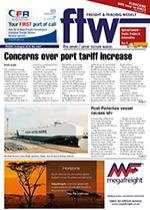South Africa’s concerns over an on-going US investigation into levying tariffs on importing cars and auto components is shared by the American auto industry.
This is according to Jonathan Gold, vice president of supply chain and customs policy with the US National Retail Federation (NRF), who said there was very little agreement from the retail sector about the benefits of the tariffs as being touted by the Trump administration.
This is after the US President initiated a Section 232 investigation into possibly increasing tariffs on cars from the European Union and other trading partners in June. It’s unclear when this investigation will be completed, but it’ expected before the end of the year.
A similar probe last year led to tariff increases of 25% and 10% on steel and aluminium exports to the US. The Section 232 investigations aim to reveal whether or not imports in a sector impair national security in the US. According to Gold, putting tariffs on the car manufacturing sector is going to have an incredibly negative impact on the US economy at large.
“This threat of a 20% tariff being imposed on the auto industry overall is not going to be beneficial to the US. We’re not in agreement with this move.”
Speaking in Sandton at the Brics forum recently, South African Minister of Trade and Industry Rob Davies said South Africa would launch a lawsuit against the US should it impose its proposed tariffs on automotive imports from South Africa. Davies stressed that the tariffs would violate South Africa’s rights under the African Growth and Opportunity Act.
Under the agreement, SA automotive exports to the US are duty free. In a previous interview, Davies told FTW that South Africa only accounted for 0.4% of total US imports of automotive products and posed no national security threat to the US in any way whatsoever. The US, however, has been adamant that there was evidence that imports from abroad, including the European Union and Asia, had been eroding its domestic auto industry for decades.
Gold said that from a retail industry perspective it was uncertain where this evidence had been collated from as it was certainly not a sentiment shared by the business sector in the US. Countries like Mexico also shared their concerns saying a tariff increase would be a terrible blow for the Mexican economy in terms of job creation and foreign direct investment.
Last week several country representatives from Canada, the European Union, Japan, Mexico, and South Korea met in Geneva to discuss how it would respond to Trump’s threats.
At the time of going to print, details of the meeting were not yet available but in the interim, auto manufacturers around the world are being told to prepare for the worst.

